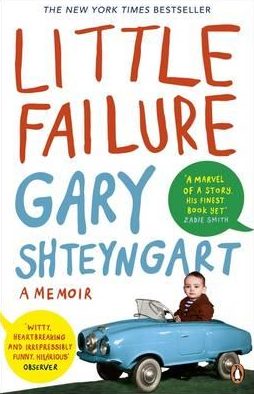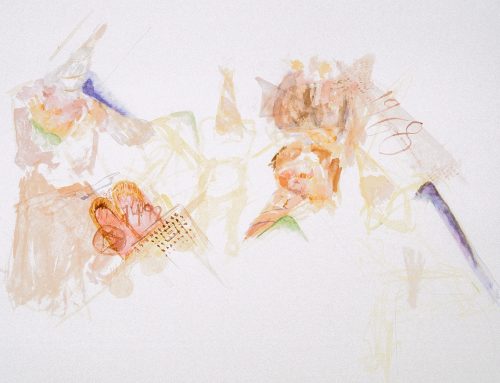
Author Gary Shteyngart after reading from “Little Failure”
On May 7, 2018, author Gary Shteyngart and Professor Sasha Senderovich of Jewish & Slavic Studies sat down to discuss Shteyngart’s memoir, “Little Failure,” in the first of two 2018 Stroum Lectures in Jewish Studies. Videos of this event are now online below and on YouTube.
“Failure is an Option: Immigration, Memory, and the Russian Jewish Experience” Entire Event
Later in the evening, Shetyngart read selections from his book:
Shteyngart also answered audience questions about immigration, Soviet Russia, and identity:
Videos of Shteyngart and Professor Senderovich’s followup conversation, about hedge fund managers, white supremacists, Trump’s America, and Shteyngart’s new novel “Lake Success,” are available here.
Writes Ph.D. student and past Jewish Studies Graduate Fellow Denise Grollmus, “Shteyngart’s fourth book, ‘Little Failure,’ was meant to mark the end of an era. Not only did the project find Shteyngart working in a new mode, but the book was also intended as a sort of ‘fire sale’ of personal material. The plan was to painstakingly mine his past of every last detail so that there would be none left for his future fiction.
 But there was a tender motive for ‘Little Failure,’ too. Shteyngart, now a father, wanted to recount for his son what life had been like in (and after) the Soviet Union. In order to do so, Shteyngart said he couldn’t ‘hide in humor’ or in the familiar satire of his previous works.
But there was a tender motive for ‘Little Failure,’ too. Shteyngart, now a father, wanted to recount for his son what life had been like in (and after) the Soviet Union. In order to do so, Shteyngart said he couldn’t ‘hide in humor’ or in the familiar satire of his previous works.
But that doesn’t mean the book isn’t funny. It’s hilarious—a hilarity that Shteyngart attributes to the Soviet jokes and uncanny sense of the absurd that served as a mode of Soviet survival, and that described not only his childhood in Leningrad, but life in his family’s NYC home, a Russian-only zone hermetically sealed off from American culture, including television. In many ways, ‘Little Failure’ allowed Shteyngart to engage in a studied exploration of the roots of his humor and the different forms of laughter—both empowering and not—that defined his life.
The fact that the comedic tone and stylings, both totalitarian and subversive, of his USSR youth have become so resonant today also seemed, to Shteyngart, to speak to a troubling fact. Where, after the fall of the Soviet Union, he assumed that Russia would become more like the US, the opposite has proven true. Even the recent rise of anti-Semitic attacks seem to smack of Soviet sensibilities, he said, leaving Shteyngart to wonder: ‘I grew up in a dystopia—will I have to die in one too?'”
Read Denise’s full reflection on Shteyngart’s writing and the 2018 Stroum Lectures here.
Videos of Shteyngart and Professor Senderovich’s followup conversation, about hedge fund managers, white supremacists, Trump’s America, and Shteyngart’s new novel “Lake Success,” are available here.
Further Reading
- “What are you laughing at?” Two nights with Gary Shteyngart by Denise Grollmus (2018)
- What can literary scholars working in the field of Jewish Studies teach us about how to survive (and resist) the Trump Era? A lot, it seems by Denise Grollmus (2017)
- From the American Midwest to the Jewish-Soviet crossroads by Cyrus Rodgers (2014)
- Jews in Soviet Cinema of the 1920s-1940s by Anatoliy Klots (2014)



![Inaugural “Muestros Artistas” [Our Artists] Sephardic Arts Symposium](https://jewishstudies.washington.edu/wp-content/uploads/2023/07/UWJS_Artists-019-500x383.jpg)


Leave A Comment